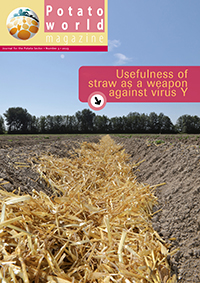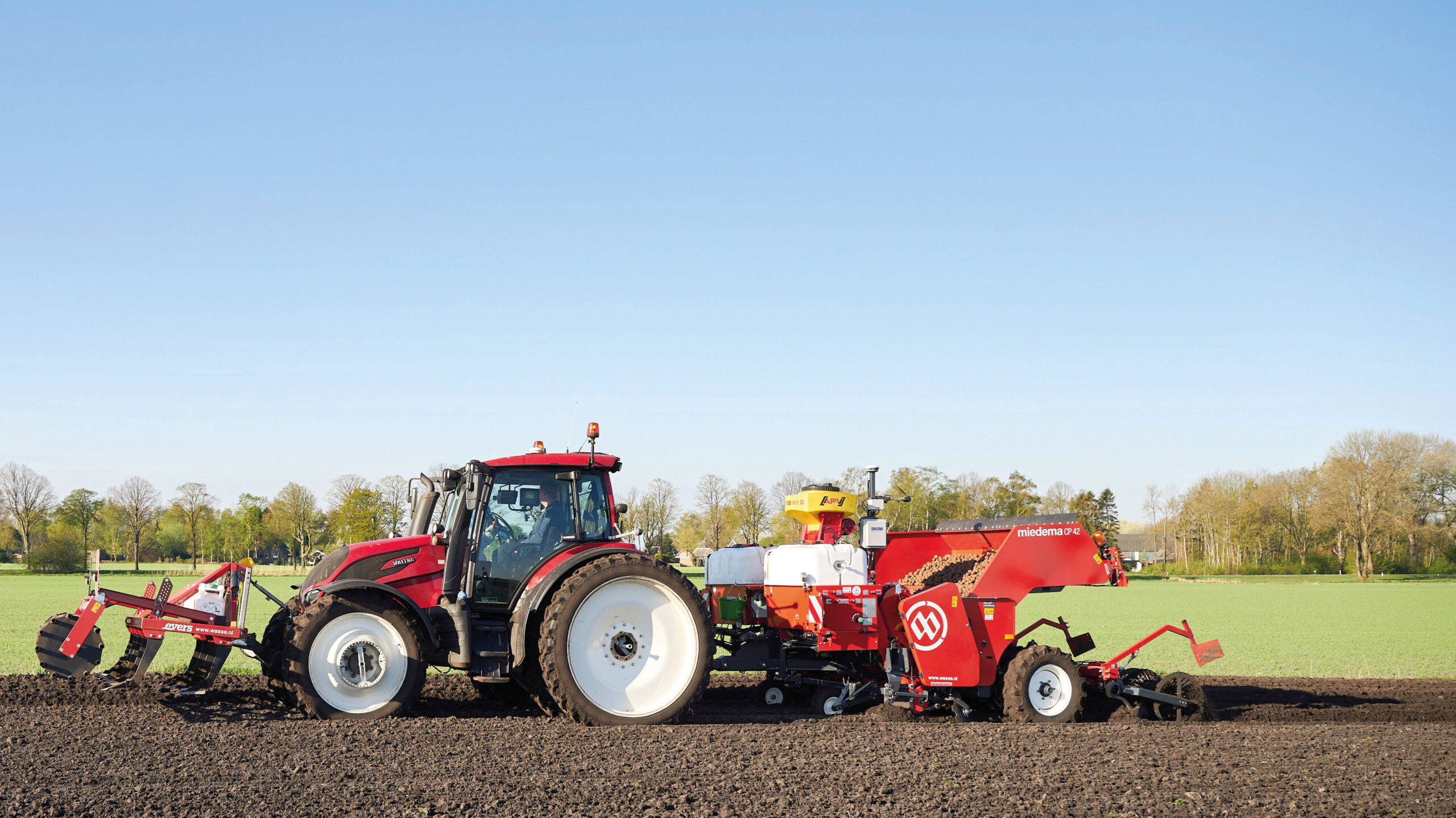Already a subscriber? Activate your premium account

Potatoworld Magazine

Precision agriculture (PA) is a farming management concept based on observing, measuring and responding to inter and intra-field variability in potatoes and other crops. It allows managing both farm and environmental/societal targets. What is the effect of ‘sticks’, ‘carrots’ and ‘elephants’ in adoption of PA and transition to more sustainable farming?
Calendar farming could become ‘the term of the year’ in Dutch agriculture, but not in a positive sense. Farmers face more and more limitations in farm management practices linked to dates on the calendar. The latest one, coming from the 7th Nitrate Action Program, is the obligation to have your ware potatoes harvested in some important growing areas before October 1 of the respective year, starting 2023. This is to prevent leaching of nutrients in winter months. For the Dutch farmers association LTO, this was the straw that breaks the camel’s back and a reason to submit a petition to the parliament to ask for policy regulations that are feasible at farm level. In addition, they showed parliament members that they are faced with so many limitations that running a farm is hardly possible anymore: it takes out all craftmanship. Trust in craftmanship is to be returned.

If the weather gods play with it even before the ink of the regulation was dry, 2023 started with extreme weather. North West Europe, a key cropping area for ware potatoes, got a very wet start. There was so much rain for months that the 2023 potato planting season only started end of May, at least this was the situation for many farms in The Netherlands. This late planting combined with a deadline for early harvest in September will lead to substantial lower yields. And we still have to wait if the weather gods allow harvest in September. This policy will not lead to resource use efficiency. And not meeting the deadline, will give the farmer a penalty on nitrogen use in the next year’s crop. Will this ‘stick’ work?
Farmers ask in the aforementioned petition for management targets, instead of management limitation. These targets can be formulated as stimulating ‘carrots’. Farmers prefer rules that give clear, science based targets to meet, and space for applying craftmanship and good farming practices that give, on one hand resource use efficiency, and on the other hand environmental and societal benefits. Another ‘carrot’ is near. Regulation to add precision farming applications to the 2024 list of eco-activities farmers can choose from is being made. Farmers can then receive subsidy for these applications in the frame of the National Strategic Plan (NSP) and EU Common Agricultural Policy (CAP). Farmers that invest in know-how and technology to meet targets and produce more sustainable, are reworded in this way.
In this NSP/CAP policy, showing compliance with good practices is a must. Farmers have to have control on data that is generated on their farms, e.g. collect, store and share as-applied maps. The Dutch Branche organisation Arable farming published here action plan on improving the data space of farmers. The organisation has made a roadmap plan with the Ministry of Agriculture, the Dutch paying agency (RVO) and WUR to arrive in a few years’ time in a situation that farmers can manage and control data generated on their farms. This will make that they have data to optimize farming and showing compliance of application of good practices.
I hope for more ‘carrots’ to make farming more sustainable, so to keep farmers positive in the desired transition process. A very recent decision by a Dutch lawyer to – for now – forbid a farmer to use pesticides anymore starting early June 2023 in Lily crops, however, does not make me positive on farmer’s attitude in putting effort in becoming ‘science based’ sustainable. The summary judgement (kort geding is the Dutch legal terms for the decision) by this judge was based on reasoning that safety of the pesticides for neighbours could not be not evaluated, and a provisional ban is in place. This could become a case law for any pesticide use by farmers, the next ‘elephant’ in the room. ●
Dr. Ir. Corné Kempenaar
Wageningen University & Research, and Aeres University of Applied Sciences
Events
©2015 - 2024 Potatoworld | Webdesign and realisation COMMPRO